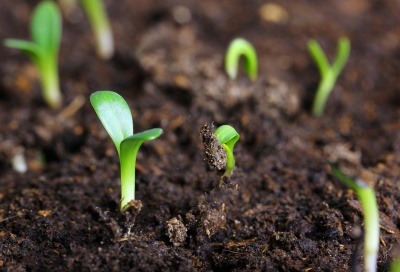UN report lays out ‘startling’ impact of agricultural plastics
In a report published today, the UN Food and Agriculture Organisation (FAO) has laid out the serious implications of agricultural plastics, urgently calling for ‘coordinated and decisive action’.
The report, entitled ‘Assessment of Agricultural Plastics and their Sustainability: A Call for Action’, identifies alternatives and interventions which could improve the circularity and ‘sound management’ of agricultural plastics. The report seeks to fill the research gap surrounding the issue, comparing it to the better-documented issue of marine plastics. Though poorly documented, the FAO says, agricultural plastic pollution is far more significant, and poses an even greater risk to food security, human health, and the environment.
 “This report serves as a loud call to coordinated and decisive action to facilitate good management practices and curb the disastrous use of plastics across the agricultural sectors,” FAO Deputy Director-General Maria Helena Semedo said in the report’s forward.
“This report serves as a loud call to coordinated and decisive action to facilitate good management practices and curb the disastrous use of plastics across the agricultural sectors,” FAO Deputy Director-General Maria Helena Semedo said in the report’s forward.
Findings
Data suggests that only small fractions of agricultural plastics are collected and recycled, predominantly in developed countries. Elsewhere, the report states, most plastics are incinerated, buried, or landfilled, with record-keeping virtually ‘non-existent’. The burning of agricultural plastics is a source of toxic emissions, including polychlorinated dibenzo-p-dioxins and furans, both persistent organic pollutants. The report further notes that the majority of plastics are derived from fossil-based sources, contributing to global greenhouse gas emissions across the supply chain.
The FAO’s research has revealed the impact of plastics on agricultural yields, with the accumulation in surface soils of mulching film – a major category of agricultural plastic by mass – linked to a reduced yield. According to industry experts, global demand for greenhouse, mulching and silage films will increase by 50 per cent, from 6.1 million tonnes in 2018 to 9.5 million tonnes in 2030.
The report also raises concerns about the formation and journey of microplastics derived from agricultural plastic products, these materials having the potential to transfer along trophic levels, with the possibility of significantly affecting human health. Larger plastic residues in both aquatic and terrestrial environments also have the potential to harm wildlife through entanglement and indigestion.
Evidence is increasingly suggesting that plastic fragments and microplastics are vectors for the long-range dispersal of pathogens and toxic chemicals in oceans. However, the report notes, the evidence base in terrestrial environments is currently limited.
Microplastics, the report says, are thought to present specific risks to animal health, but recent studies have detected traces of microplastic particles in human faeces and placentas. There is also evidence of mother-to-foetus transmission of much smaller nanoplastics in rats.
Recommended actions
The report recommends that agricultural plastics be addressed in a holistic manner, in line with circular principles. At the international level, the FAO urges for a ‘two-pronged approach’, calling for the development of a ‘comprehensive voluntary code of conduct to cover all aspects of plastics throughout agri-food value chains’. This, the report states, should be paired with the ‘mainstreaming of specific aspects of the life cycle of agricultural plastics’ where appropriate, citing the Basel and MARPOL Conventions as examples.
The FAO also identifies existing knowledge gaps and suggested areas for further research – the global flows and fates of agricultural plastics; life cycle assessments of fossil-based and bio-based agricultural plastics; the pathways and impacts of plastics, micro-plastics, and nano-plastics on agroecosystems, food safety, and human health; and the behaviour and rate of degradation of biodegradable products.
‘A stark warning’
Commenting on the report, Sian Sutherland, co-founder of A Plastic Planet, said: “This report gives a stark warning that we cannot overlook the impact of plastic in our soils. They are the lifeblood of our planet, providing 95 per cent of our food supply, yet they are 23 times more polluted with plastic than our oceans.
"In one handful of soil, there are billions of living organisms; more than humans have ever lived on our planet. And how do we treat this vibrant, rich, energy-giving; nutrient-growing; carbon-sinking soil - we treat it like dirt.
“The agricultural industry is a huge contributor to this, using more than 12 million tonnes of plastic each year. Most of which is destined to pollute our soils, where it’ll leach a toxic cocktail of chemicals into the earth and nearby water sources, contaminate fruit and vegetables, and make the soils unusable. But the problem is far wider. Everyday plastics from packaging, clothing, and laundry products are all part of the picture.
“Simply put, plastic is killing our soils. Much talk revolves around plastic polluting the world’s oceans, but it’s crucial we stop it from desecrating our soils, which are vital to our existence.
“We call on all governments around the world to act urgently to address the issues in this report, and bring forward real action, at pace, which will stem the flow of plastic into the earth. We must not ignore these findings, the future of generations to come depends on it.”






